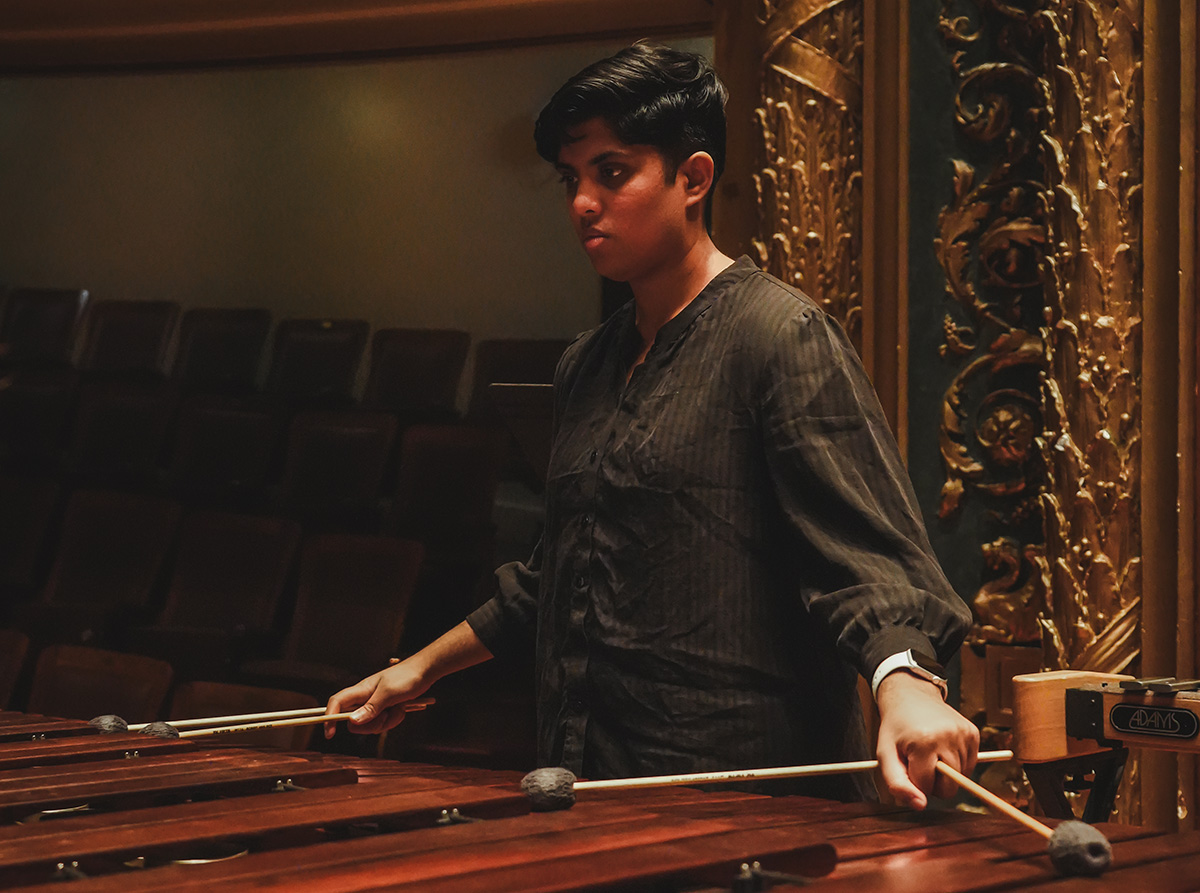Meet the Artists - Beccy Abraham
About: Rebecca Abraham is an engineer, researcher, and musician. In 2020, they graduated from UC Berkeley, where they studied electrical engineering and computer science. Now, they’re pursuing graduate studies at Dartmouth with the goal of creating ways to share the joy of musical expression. Rebecca’s primary instrument is the marimba, and they have more than a decade of concert percussion experience. They’ve played trombone with Cal Band and acted as principal percussionist for the University Wind Ensemble. They also help organize poetry events in the East Bay, and they enjoy crafting, cooking, and visiting local coffee shops.
How do you describe your practice?
I am an instrument builder and researcher pursuing an MFA in Sonic Practice at Dartmouth College. I work in creative coding and interface design with the goal of giving broad audiences easy access to sound-making and creative expression. My primary instrument is the marimba, and my performance practice has spanned solo marimba, wind ensemble, jazz ensemble, and marching band.
What are your influences, what inspires you?
Many of my first music-making experiences in grade school and college were in large ensembles, like marching bands and wind orchestras. I’m drawn to these kinds of collective experiences, as well as more informal ones. I’m interested in creating similar playful, and intimate experiences with the instruments I create. In that respect, I’m inspired by Pauline Oliveros’s work, especially Sonic Meditations, and I’m curious about ways ubiquitous technology can become a tool for contemplation and creative expression rather than a means for disengagement. Most recently, I’ve been building Tiny Touch Instruments (TTIs), software instruments that can be accessed on a mobile website and controlled with touch gestures. With support from the Leslie Center for the Humanities, I’m planning a series of group improvisation workshops with the TTIs for people with a wide range of musical backgrounds.
I’m passionate about education and making technical skills accessible to young people, especially folks who are underrepresented in STEM fields. I think creative coding can be a powerful pedagogical tool, and I enjoy teaching workshops in p5.js and similar technologies. I’m constantly inspired by my students and what they come up with after learning just a few functions to create visual art or music.
Where are you based and what is your background in terms of education?
I’m currently based in the United States, in Vermont, and I’m an MFA student studying Sonic Practice at Dartmouth College. My undergraduate degree was in Electrical Engineering and Computer Science at the University of California, Berkeley. I grew up in the East Bay in California and worked as a software engineer in Oakland before pursuing graduate studies.
What does engaging with nature mean to you as an artist?
I moved from a California suburb to a rural town in Vermont last year to focus on my creative practice. Situated in the middle of a forest, I’m finding that the everpresence and easy access to nature colors everything I create. Vermont residents have been instrumental in building the climate movement in the United States, and it makes sense given the community-building power I’ve experienced here regularly, often centered around agriculture and outdoor activities.
I’m experiencing dramatic seasonal shifts for the first time in New England, and I’m reminded of the many natural cycles that intersect with and influence our life cycles. This particular cycle of grad school, deeply engaged with my natural environment, affords me a slowness and stillness that directly feeds into my craft.
What does it mean to be selected for the summer school?
I feel really honored to be a part of the summer school, with a group of incredibly talented researchers and artists. I’m excited to get to know them and their practices and to share time and space this summer.
